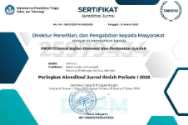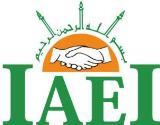THE INFLUENCE OF APPLICATION GAMIFICATION AND DRIVER PERSONAL BRANDING ON GRAB APPLICATION ENGAGEMENT AMONG STUDENTS
(1) * Rahmat Syahputra Boangmanalu
 (Universitas Islam Negeri Sumatera Utara)
(Universitas Islam Negeri Sumatera Utara) Indonesia
(2) Nur Ahmadi Bi Rahmani (Universitas Islam Negeri Sumatera Utara)
Indonesia
(3) Nurul Inayah (Universitas Islam Negeri Sumatera Utara)
Indonesia
(*) Corresponding Author
AbstractTechnological advancements have given rise to various new professions, one of which is online motorcycle taxi drivers, which facilitate people's activities. Grab, as one of the leading online transportation applications, continues to innovate to increase user engagement. This study examines the effect of application gamification and driver personal branding on Grab application user engagement, with a case study of students at the Faculty of Islamic Economics and Business (FEBI) of the State Islamic University of North Sumatra (UINSU). This study examines the effect of application gamification and driver personal branding on Grab application user engagement, with a case study of students at the Faculty of Islamic Economics and Business (FEBI) of the State Islamic University of North Sumatra (UINSU). A questionnaire was used to collect data with a quantitative causal associative approach from students who actively use Grab. The results of the analysis show that these two independent variables significantly influence user engagement. Application gamification, through elements such as points, cashback, voucher exchange, and level achievement, is proven to have a stronger influence in increasing user motivation and interaction. Meanwhile, driver personal branding, which includes professionalism and a positive image, also contributes significantly to increasing user trust and loyalty. Although gamification has a more dominant impact, the combination of both factors is crucial to provide a positive customer experience, which is engaging and sustainable, ultimately driving deeper engagement with the Grab platform.
|
Keywords
Application Gamification; Drive Personal Branding; Application Engagement; Grab
Full Text: PDF
Refbacks
- There are currently no refbacks.
Copyright (c) 2025 Rahmat Syahputra Boangmanalu, Nur Ahmadi Bi Rahmani, Nurul Inayah
This work is licensed under a Creative Commons Attribution-NonCommercial-ShareAlike 4.0 International License.
Profit : Jurnal Kajian Ekonomi dan Perbankan Syariah
Published by Islamic Faculty of Nurul Jadid University, Probolinggo, East Java, Indonesia.
Published by Islamic Faculty of Nurul Jadid University, Probolinggo, East Java, Indonesia.





.jpg)



